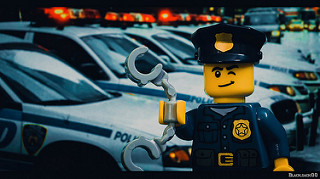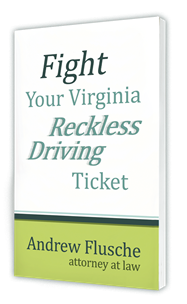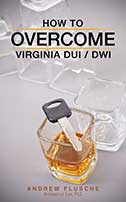Can a Cop Pull You Over for No Reason?

Navigating the legality of traffic stops, this article delves into whether police can pull you over without cause, highlighting the necessity of reasonable suspicion and lawful grounds for such actions.
Key Takeaways
- In the U.S., police must have reasonable suspicion of law violation for a traffic stop.
- Examples include speeding, expired registration, or signs of DUI.
- Lawful reasons extend to specifics like mismatched plates or rear-view mirror obstructions.
- Compliance with traffic and vehicle regulations is crucial to avoid unnecessary stops.
- If stopped without clear reason, legal advice and representation are recommended.
Can a Cop Pull You Over for No Reason?
One big question that many motorists have is how the officers can pull you over. Do they need a reason to do so? In other words, can a cop pull you over for no reason?
The answer to this question is kind of complicated, but it starts with a simple answer of no. An officer cannot pull you over for no reason.
In order to make a traffic stop of your vehicle, the law in the United States says that an officer must have a valid reason to do so, but it’s more complicated than that.
Virginia Traffic Stop Laws
The basic law for stopping a vehicle is that a cop has to have a reasonable articulable suspicion that you have broken the law or that other criminal activity is afoot.
What does that mean? Well, the simple answer is the officer must have a reasonable suspicion that you violated things like traffic laws for speeding or registration or swerving over a line.
Those illegal actions give the officer a reason to pull you over. That’s a simple clear-cut example that everyone understands.
Where it gets complicated is when things are less straightforward. In other words, there isn’t one clear indication of illegal activity, but a bigger catchall indication of criminal activity being afoot. What exactly does that mean?
What that means is that if the officer, based on his training and experience, can testify and point to several things that he thinks meant that there may be some criminal activity going on, he can still pull you over.
A good example is that if you’re swerving within your lane in Virginia, an officer can pull you over for suspicion of DUI.
It’s not illegal to swerve within your lane as long as you’re maintaining your lane of travel and not crossing over either line. However, if you swerve several times within your lane, an officer can testify that—based on their training and experience—the swerving indicates you may have been under the influence of something. This suspicion is enough to allow them to legally pull you over to investigate.
Reasons to Get Pulled Over
Police cannot pull you over without reason. They need probable cause to believe you committed a crime before stopping, searching, or detaining you.
A cop can definitely stop you after running your plates if the return in the computer shows a problem.
For example, suppose the registered owner of the vehicle has their license suspended. If you match the general description of the registered owner, an officer now has reasonable suspicion to pull you over to see if you are that person and if you’re breaking the law by driving on a suspended driver’s license.
The same could be said if the registered owner has an open warrant for something or if perhaps the registration is dead and doesn’t match the tags that are displayed on the car.
As you can see, a cop can pull you over for many reasons.
They can’t pull you over for no reason whatsoever, but there are a lot of different things that can get you pulled over depending upon what’s going on in your specific case.
This is why it’s important to maintain proper registration, inspection, if required in your state, and any other decals such as county tax decals that might be required.
It’s also important to make sure that your vehicle has proper and safe equipment and no unauthorized equipment such as an after-market loud muffler.
Another thing that gets people pulled over at least in Virginia is having what they call a dangling object on your rear-view mirror.
The law is clear that a dangling object can get you pulled over, and if an officer is fishing for a reason to stop you, that is just enough reason for them to pull you over legally.
How Can You Tell If a Traffic Stop Was Legal?
Not all traffic stops are created equal. Even if an officer cites a reason, that reason must hold up to legal scrutiny. So, how do you know if the stop was valid? In Virginia, a lawful stop requires reasonable suspicion or specific facts that suggest a law has been broken or criminal activity is occurring.
Mere suspicions or profiling without tangible evidence do not meet the criteria for a valid stop. If any of the circumstances we described above apply to your case, the officer may have a legal reason to stop you.
However, if the officer cannot provide a clear link to observed behavior, your defense attorney may argue that the stop violated your Fourth Amendment rights.
The Actual DUI Arrest Also Needs to Be Legal
Even if the stop itself was legal, the following DUI arrest must also be handled legally. Law enforcement must have probable cause to arrest you, not just suspicion. This typically includes visible signs of impairment, field sobriety test results, or a failed preliminary breath test. Any arrest and the evidence gathered from it can be challenged if law enforcement does not follow legal procedures.
What to Do If You Believe the DUI Stop or Arrest Was Illegal
Now that you know police cannot pull you over without a reason, you might believe your stop or arrest was illegal. If so, it’s essential to address the issue and not take on this monumental task alone. An experienced attorney can file a motion to suppress evidence or even argue for case dismissal if your constitutional rights were violated. Don’t let an unlawful stop become a permanent mark on your record.
How We Won When My Client Was Illegally Stopped!
Stopped By a Cop for No Reason? Contact My Office Today
While a cop can’t stop you for no reason, there’s many, many reasons why an officer can pull you over. The best rule of thumb, of course, is to not break the law, so you don’t have anything to hide.
However, if you’re pulled over and an officer starts asking you questions or asks to search your vehicle, I always recommend that you do not answer questions politely and that you never consent to a search of your vehicle.
At Andrew Flusche, Attorney at Law, PLC, our skilled traffic attorneys can answer your questions like how long can a cop follow you? What do police see when they run your plates? Can a cop make you get out of the car? You should not face the criminal process alone.
Call our office anytime at 540-642-1761 for help. We are here to protect your future.
Resources
- Search without warrant prohibited; when search without warrant lawful. VA Code § 19.2-59, link.
- Reasonable suspicion. Cornell Law Legal Information Institute, link.
Magistrate’s Manual. Adult Arrest Procedures. Virginia Courts (2024), link.




